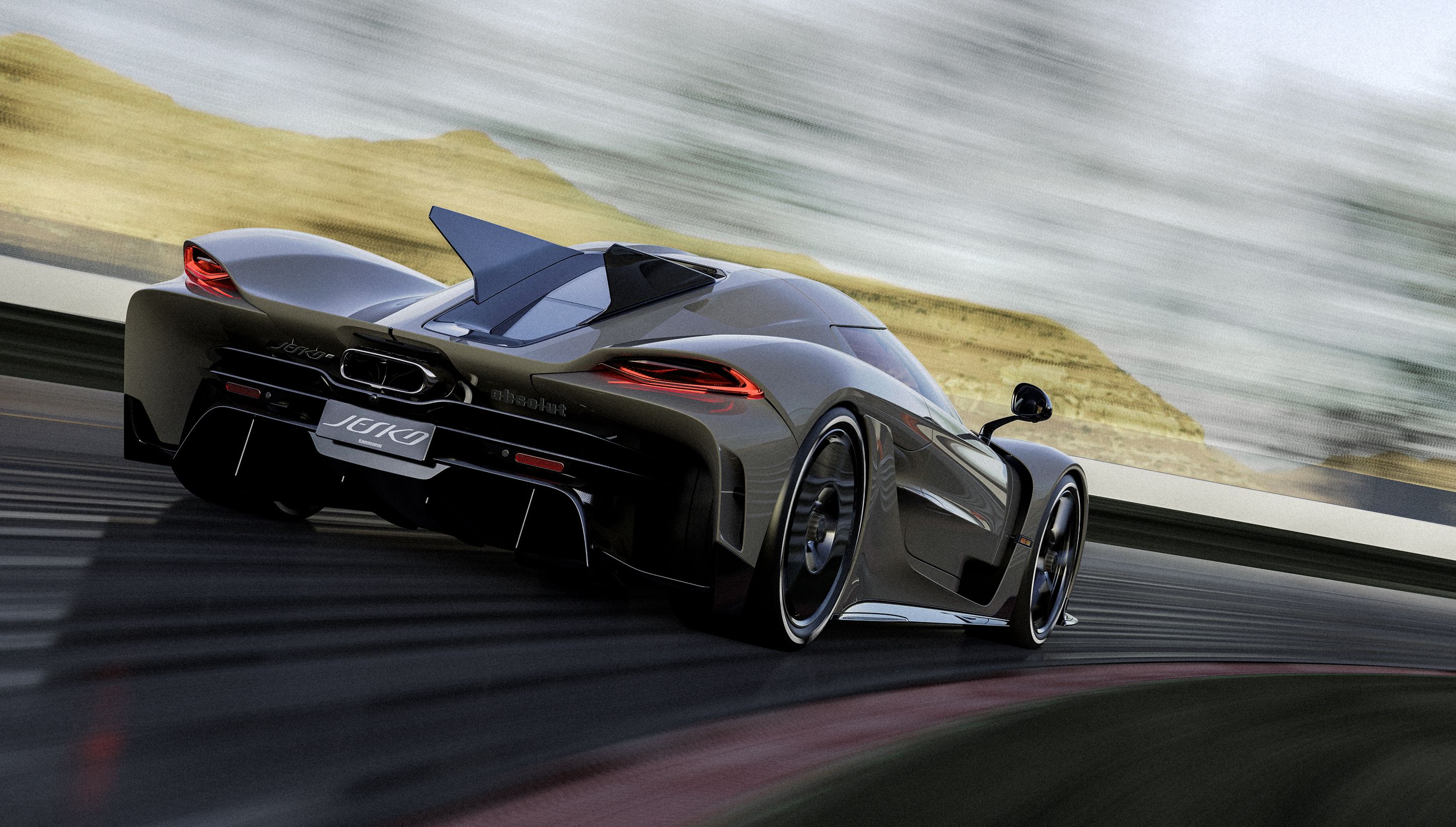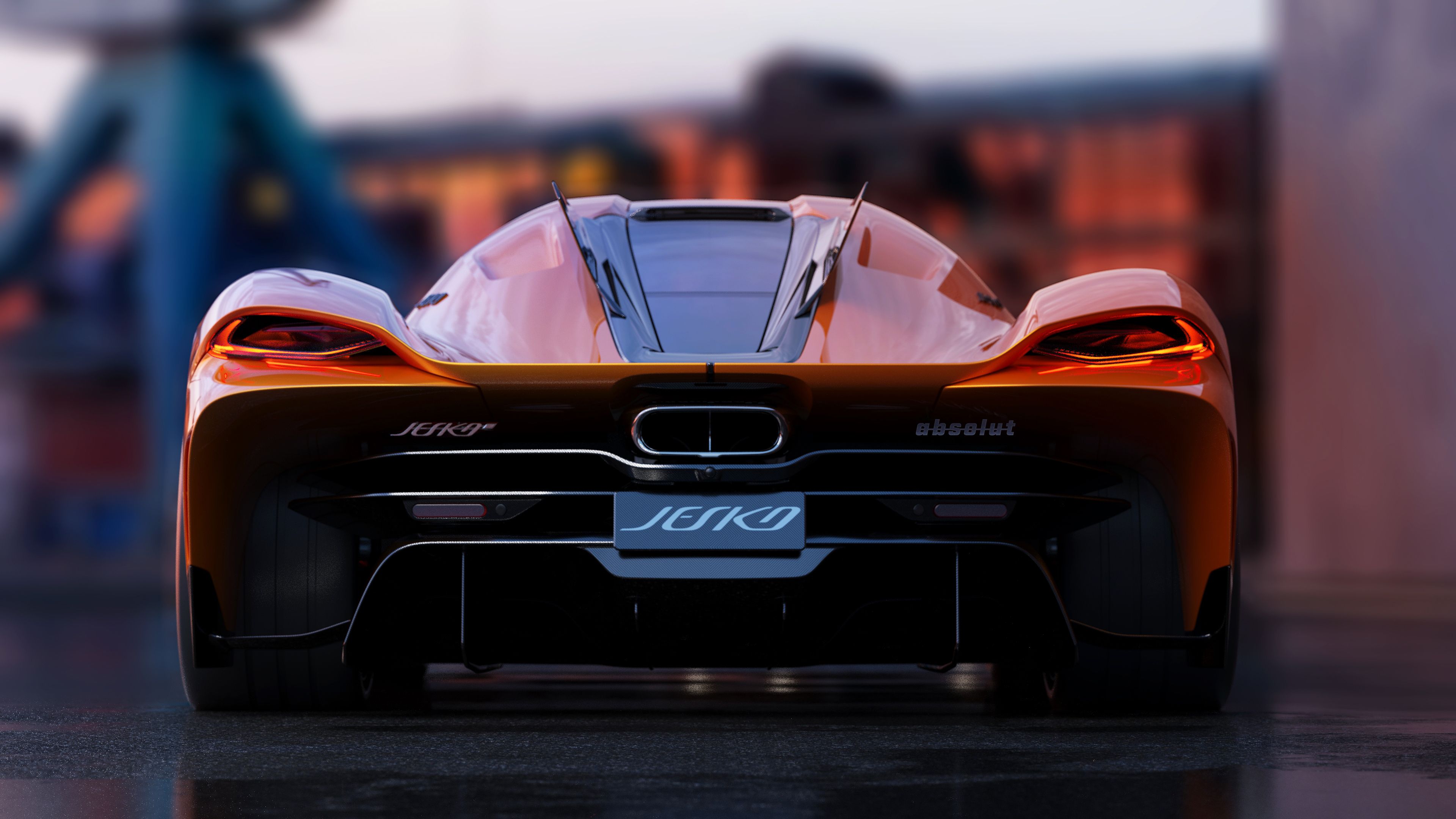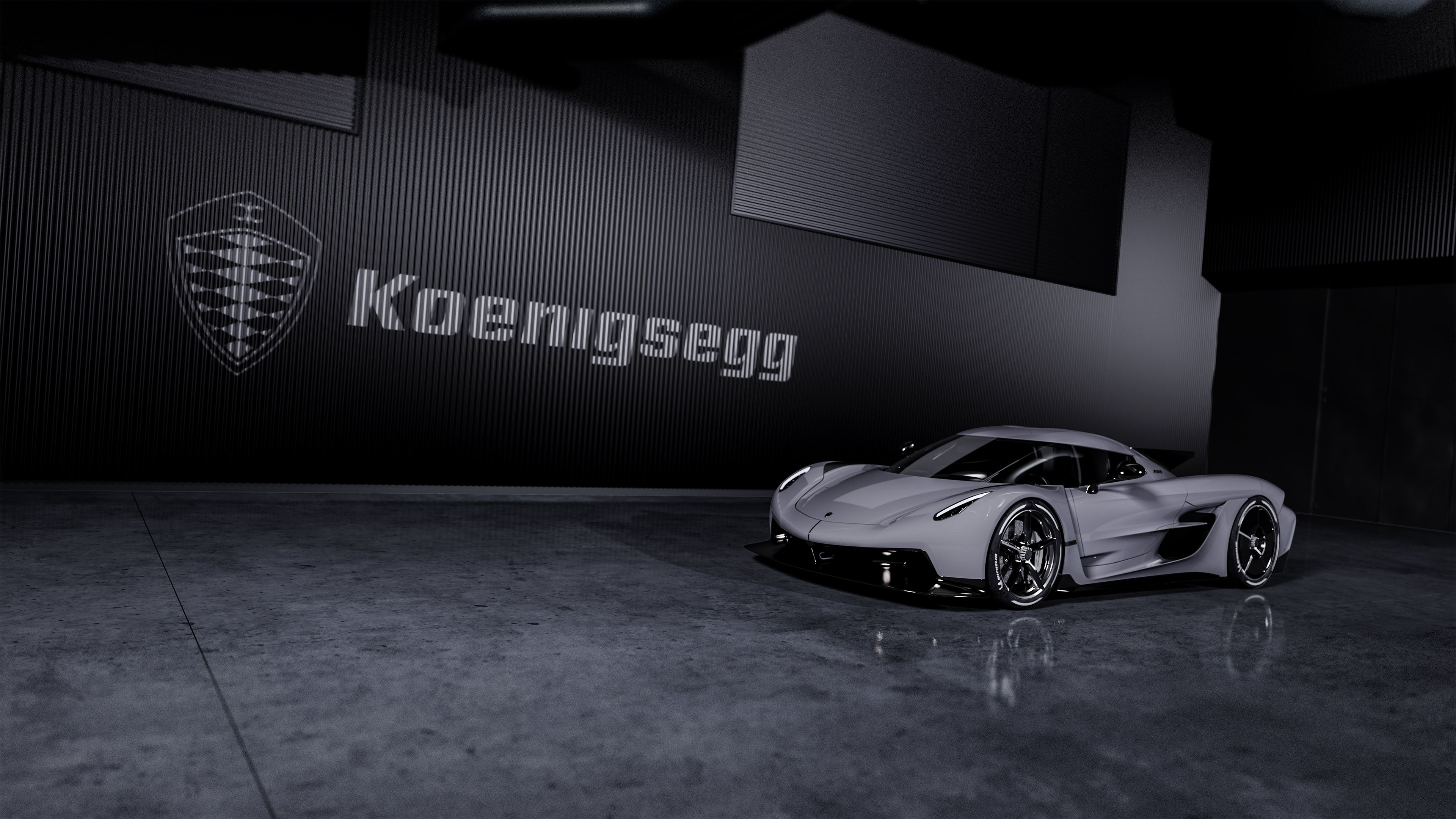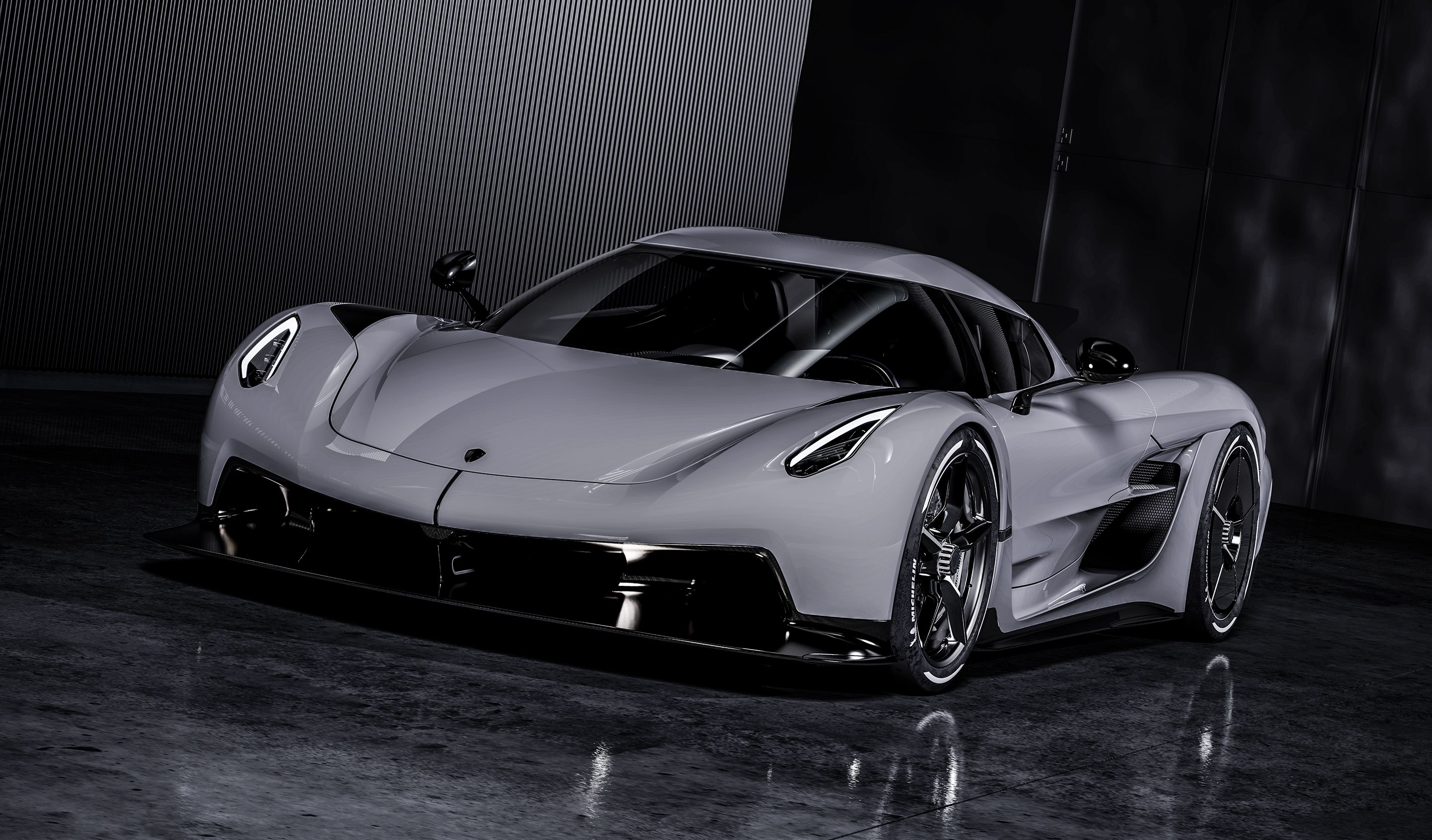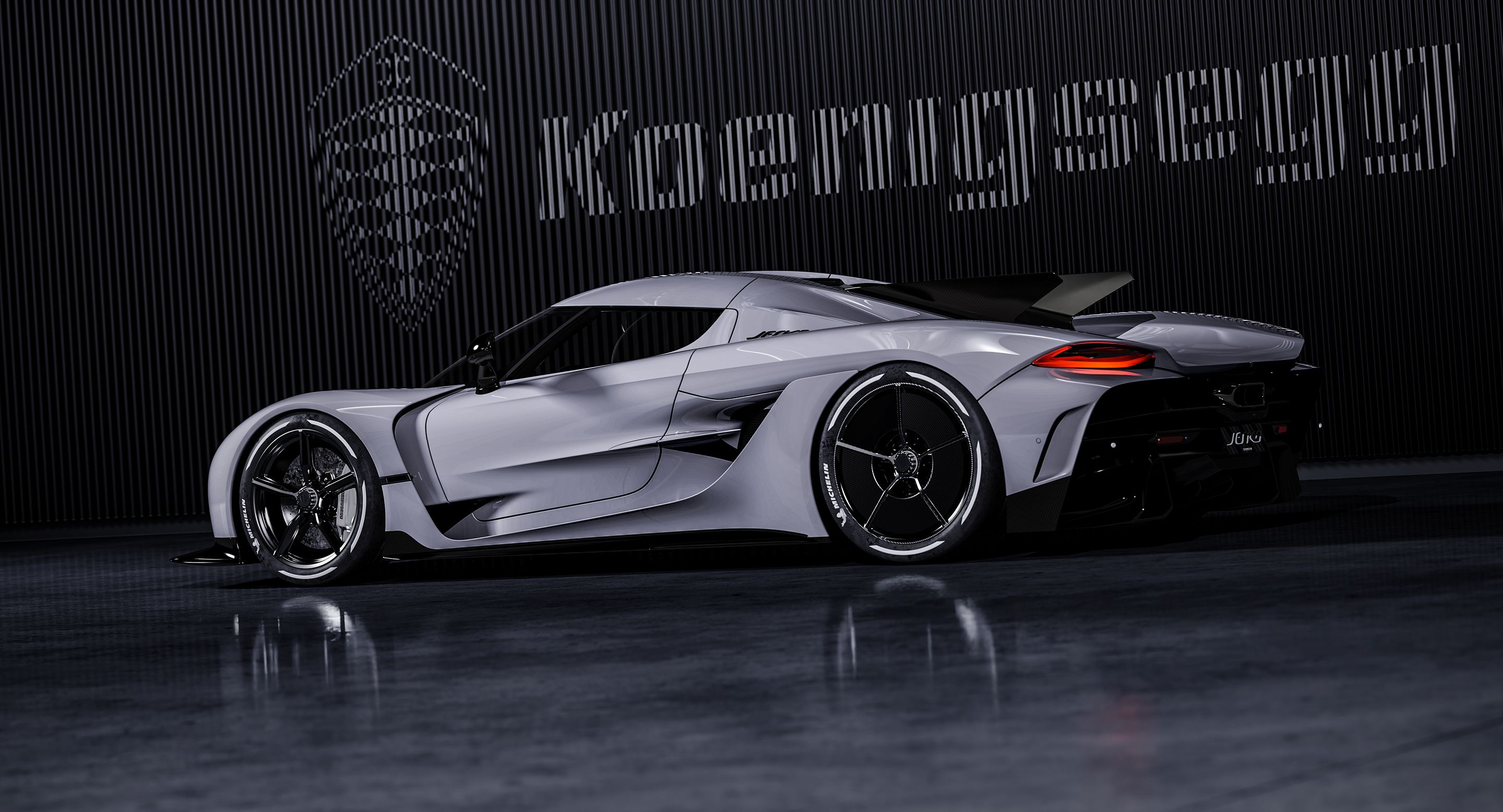Koenigsegg wasn’t going to sit and watch all the other carmakers unloading their press releases and picture packs on the internet. No, sir. So the Swedish carmaker dropped what it calls the Jesko Absolut, a supercar that’s based on the Jesko but ups the ante when it comes to aerodynamics and high-speed road behavior.
OK, so it’s not a special edition made with Absolut the vodka, then?
No, there’s no alcohol involved. The Jesko Absolut was instilled with a drag coefficient (Cd) of 0.278, which will help make it “unbelievably fast” according to Koenigsegg’s simulations.
So, what changed visually? Well, for starters, the Jesko Absolut doesn’t feature a massive rear wing. Instead, it flaunts two fins that take inspiration from the F-15 fighter jet’s double vertical stabilizers. According to Koenigsegg, they help the hypercar “clean up airflow over the rear end, which stabilizes the Jesko Absolut at high speeds and surprisingly also reduce total drag.”
What’s more, the Absolut features a couple of elements that make it look a lot like the McLaren Speedtail. These are:
-* an extended rear hood
-* covered rear wheels
-* lowered suspension
-* missing front-wheel louvres
-* front hood closed air duct
Koenigsegg Jesko Absolut - Powertrain
The Jesko Absolut is powered by the same 1,600-horsepower, twin-turbocharged, 180-degree crankshaft V-8. The engine revs to 8,500 rpm and mates to Koenigsegg’s house-produced nine-speed Light Speed Transmission (LST).
Mind you, Christian von Koenigsegg is adamant that the Jesko Absolut can work as a daily driver as well. You can actually stow the roof in the front trunk, so you get less downforce and the option to soften the suspension setup.
Koenigsegg Jesko specifications
|
Engine |
Koenigsegg twin turbo aluminium 5,0L V8, 4 valves per cylinder, flat-plane crankshaft, double overhead camshafts, dry sump lubrication |
||||||||||||||||
|---|---|---|---|---|---|---|---|---|---|---|---|---|---|---|---|---|---|
|
Compression: 8.6:1 |
Bore: 92 mm Stroke: 95.25 mm |
Sequential, multipoint fuel injection with individual cylinder pressure sensors and back pressure sensors |
Closed loop individual combustion and lambda control, twin ceramic ball bearing turbo chargers with Koenigsegg response system. |
1.7 bar boost pressure (2.2 bar with E85) |
Dry sump lubrication. Carbon fiber intake manifold with optimised intake tracts |
Tig-welded ceramic coated 0.8 mm wall thickness inconel exhaust system manifold with merge collector |
Total engine weight: 189 kg |
OUTPUT |
Gasoline: 955 kW (1280 hp) at 7800 rpm, redline at 8500 rpm. |

